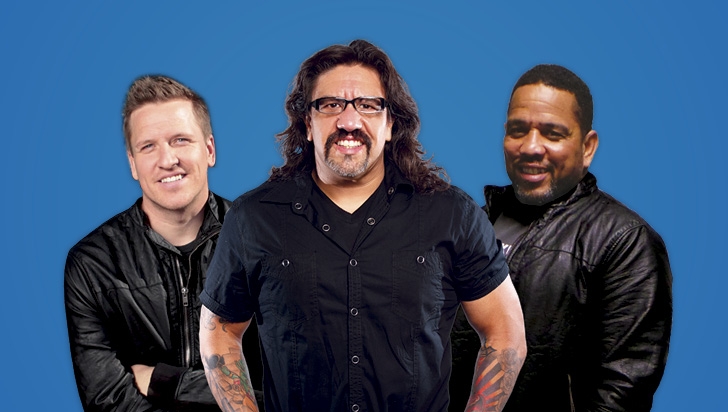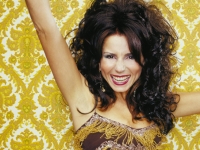Beat had a chat to Lance Patrick, one of three US comics coming to Melbourne performing with Gabriel Iglesias’ Stand-Up Revolution world tour. “I came down to Australia with Gabriel twice already,” Patrick says. “Last time we did a big tour he was getting crowds of 6,000 to 8,000 in Sydney.” Patrick won’t be playing to crowds like that in Melbourne, however. “We’re playing the Comic’s Lounge. You can get away with more edgy material at comedy clubs. You don’t have to play it safe; we can deliver adult-oriented humour.”
Patrick is based in Los Angeles where he’s a writer for Ray Williams Johnson’s online show Equals Three and is a permanent cast member of Breaking LA. He also writes and directs Iglesias’ weekly web series Damn TV. Patrick says it’s much easier writing sketch comedy than performing stand-up. “Writing regular sketches is easy for me. You ask the ‘what if’ question and act it out. The characters and the image paint the punchline – you don’t have to write it. With stand-up you don’t always have visuals. You can’t show the things you do in sketch. You don’t have to write the set-up. With stand-up you’re writing in your own voice. I tend to joke about random weird things. I joke about what’s current, about what’s out there. Stand-up is one of the hardest things I’ve attempted! I’d rather be in front of a 50,000 crowd and sing off-key! You want to give the audience more energy than they are giving you. Never blame the audience. It takes two. If I’m nervous the audience is nervous with me. When you perform, if you’re awkward, the audience is awkward with you. I’ve been doing stand-up for four years now and that’s not long. Some comics have been doing it for 25 – 30 years. That blows my mind. I hope to be there. I’m still trying to find my voice. It takes 5 -10 years to find out who you are on stage, how you want to joke. I want to get to that point. I don’t put on an act, Most of us are ourselves and that makes us vulnerable. I love it, it’s an adrenaline rush. If a show goes off the energy of the audience stays with you and you can’t sleep. “
Patrick deals with very few hecklers. His ploy is to pre-empt any nastiness from the audience. “I don’t get heckled much. I start my set off by picking on myself before anyone else can. “What does he have to say to people who still reckon women aren’t funny? “It’s an off-kilter argument. You can’t say one group of people are not funny. Look at Amy Schumer, Sarah Silverman, Nikki Glaser…” What about taboos? “It depends on where you are. You read the intent of the comedian. I never want to get into politics or religion. You immediately split your audience from the get go. I’m not like Jim Jefferies – he goes there. He’s not afraid to talk about religion. The whole audience can be against him. He says things a lot of comedians wouldn’t say, especially if you want to get on TV. John Delaney jokes that he’s so uncomfortable with the ‘n word he won’t even say ‘vinegar’!
“My advice to wannabes – get up on stage when you can. Don’t be afraid of not being funny. Tell your story and let that be enough – just tell the story. It takes however long it takes. I’ve seen great comedians bomb on stage. For months later the same story is just hilarious.”
BY LIZA DEZFOULI

